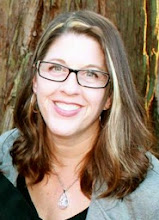
Okay, not really (as if it would be that easy). More like how I write a book. There is a lot of talk out there about outlining vs seat-of-your pants writing and I used to be a confirmed seat-of-your-pantser. That came to an end when Agent E. (very gently) showed me the difference between situation and plot. As in "Well, that's a nice situation you've got there. So what exactly is the story?"
If you're an aspiring writer and haven't availed yourself of Verla Kay's
Blueboards, you should hustle over there right now. Click on the link to "Message Boards" over on the right hand side and you'll be in a community with both very experienced and novice writers with great topics - it's a writing education in itself. I spend a ridiculous amount of time there.
I mention this because I got this invaluable piece of writing advice there awhile ago: Nine Steps to Plotting Fiction. I'm not sure where the method started, but it is (for me) the best combination between knowing where your book is going and letting the book write itself. You just put in the nine plot issues and connect the dots - more like a guide than a true, scary outline. If you find yourself in the middle of a story and not a clue where you should go, give it a try. Here it is in a nutshell:
9 Steps for Plotting Fiction (Taken from the Verla Kay Message Boards)
~~~~~~~~~~~~~~~~~~~~~~~~~~~~~~~~~~~~~~~
Start with a piece of paper. It should be large enough to write on.
I used 11x14 just to give me a little more room, but 8x11 is fine. Draw two parallel lines both vertically and horizontally across the page, creating 9 comparable boxes, as if you
were starting a game of tic-tac-toe. These boxes represent chapters,
scenes, or sections, depending upon your book's intended length.
Number the boxes, starting from the upper left: 1, 2, 3.
Next row, starting from the left: 4, 5, 6.
Last row: 7, 8, 9.
Title each box…
1 Triggering event
First thing's first. What happens? Why have you bothered to write a
book, and more importantly, why should a reader invest time flipping
through its pages. Your triggering event is the answer to those
questions, so make it a good one. Also, don't make the reader wait
very long for it. First page, first paragraph, first sentence.
These are good spots for a triggering event.
2 Characterization
Generally, books succeed or fail on the strength of their characters
more so than on the strength of their plots. The second box is where
you explore what makes your protagonist tick. No, this isn't an
excuse for drawn out exposition, history, or back story. If your
triggering event is captivating, the reader will discover enough
about the protagonist in Box Two simply by reading how he or she
reacts to the event.
3 First major turning point
By now, your plot is picking up steam, and because of Box Two, the
reader is invested in the ride. Time to throw a curve ball. This
turning point can be either a positive event for your protagonist,
or a negative one, but it should lay the groundwork for the negative
turning point in the sixth square. There is a reason these boxes are
touching one another; they interrelate. For example, Box Three may
introduce the motivation of the antagonist, which then justifies the
events in the sixth square.
4 Exposition
You've earned some time to fill the reader in on important data.
Since this box touches the first square, here's where you shed some
light on that triggering event. Since it also touches Box Seven, you
get to foreshadow your pro-tagonist's darkest hour. Box Four often
reveals a relationship, character flaw, or personal history that
contributes to the dark times in ahead.
5 Connect the dots
Here is where many plots fall apart. Box Five represents the
trickiest part of fiction and since Box Five is the center of the
book it must connect to all the squares around it. Kind of like the
nucleus at the center of a bomb, Box Five should tick systematically
upon elements introduced in Box Two and Four. And like the calm
before the storm, the fifth square should give the false impression
of resolution before heading like a freight train to Box Six. Most
importantly, it needs to provide foreshadowing for the protagonist's
revelation in Box Eight. That's a lot for a little box to do, but
focus on efficient prose to get it right. Your plot depends upon it.
6 Negative turning point
Here's where that bomb explodes and all (word censored) breaks loose. Good
thing you laid the groundwork in Box Three. Good thing, too, that
Box Nine will deliver some just desserts.
7 Antagonist wins
The protagonist is defeated here, and the antagonist apparently
wins. How the protagonist deals with the darkest hour of defeat
depend upon the traits and/or story developed in Box Four, which
leads to his or her revelation in the next square.
8 Revelation
Of course! The protagonist's revelation turns the tide. Here is
where the protagonist connects the dots and overcomes the obstacles
of Boxes Six and Seven via the device introduced in Box Five.
9 Protagonist wins
The negative turning point in Box Six is rectified while the
character's resolve from Box Eight is brought into full bloom.
Congratulations! Another great tale told greatly.
Can't wait to see what you come up with!
On this date: In 1809, President Abraham Lincoln is born.















